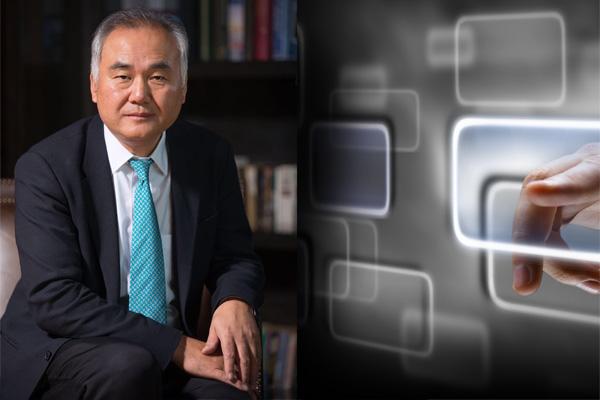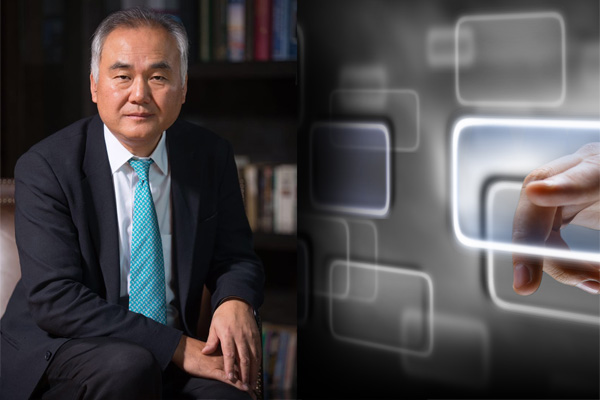
China’s legal landscape has changed drastically over the past two decades, and along with the changes came the rise and fall of many law firms in the country. JunHe, founded in Beijing in 1989 and one of the first private partnership law firms in China, is symbolic of the great successes that the country’s legal sector has seen. Today, JunHe is one of the largest and most recognized law firms in China, thanks to its deep commitment to innovation.
Since its establishment 28 years ago, the firm has now grown to over 600 professionals, including more than 180 partners and legal counsels, and over 420 associates and legal translators, in nine offices around the world. In China alone, JunHe has offices in Shanghai, Shenzhen, Guangzhou, Dalian and Haikou, in addition to its head office in Beijing.
But the journey has not been easy. “The economy wasn’t very good when we first started, so the beginning was hard. There was a very small demand for lawyers at the time,” says Xiao Wei, managing partner at JunHe.
“After 2000, things improved and our capacity increased, as well as the number and types of services we offered. We opened new branches in Shenzhen and Shanghai. But we needed to raise our partners’ ability because the legal sector was changing very fast. We had cooperation problems and needed to organize our work and corporate structure better,” he adds.
Xiao emphasizes the importance of information technology (IT) to JunHe’s success and rapid growth.
“We started using IT earlier than other law firms in China. We developed and upgraded software to better systemize our work. Our IT infrastructure development was crucial to increasing our work efficiency,” he says.
According to Xiao, JunHe uses a specially developed system to measure the cost of every lawyer and department in the firm. It records the work hours, earnings, expenses and productivity in a way that Xiao believes no other law firm does. The company has therefore invested in a large IT department to support the heavy use of technology – just the IT department already has 20- 30 people.
“We also bought software from Thomson Reuters and joined legal networks such as conferences across Asia, including Japan, Korea, Singapore and Southeast Asia. So when we need to find partner firms for our clients, we would look through the software system and networks to select a few for the clients to choose,” says Xiao. “Sometimes they trust us so much that they just tell us to decide for them.”
Back to topTHE POWER OF PEOPLE
Despite the importance of IT, human resources remain the most indispensable key to JunHe’s continued success and innovative philosophy, says Xiao.
JunHe employs talented lawyers worldwide to maintain its competitiveness. The firm’s legal professionals are primarily recruited from top law schools and law firms across the world, and some have worked as government officials, judges, accountants, tax analysts and scientists.
JunHe not only has lawyers licensed in China but also many who are qualified to practice in other jurisdictions such as Hong Kong, Australia, New Zealand, the US and the UK. This enables the firm to operate in multiple languages in addition to Chinese and English.
“It’s very important to understand that no single lawyer can do everything. We are very focused on finding professionals and giving opportunities to lawyers. That’s how we innovate. We build partnerships, we make overseas partners, and some of them make investments in JunHe to become partners,” says Xiao.
To develop the expertise of its people, JunHe provides many career opportunities. The company has a particularly strong culture of internal promotion, where 72 partners who have voting power would vote for lawyers to be promoted to partners. Recently, more than 12 lawyers at the firm have been promoted to partners.
Some of JunHe’s lawyers also hold notable posts in government agencies, international organizations, trade associations and arbitration tribunals. They write for legal publications, participate in academic research and seminars, teach at law schools as guest professors, and contribute to China’s policy making.
When advising clients, the lawyers work in multidisciplinary practice groups in which each member is equipped with specialized knowledge. The project groups are formed according to the specific requirements of each client and project, combining the different strengths and skills of various lawyers. This ensures flexible services that are client-centered and relevant.
“We also collaborate with other leading law firms, especially for outbound legal services in other jurisdictions,” says Xiao.
These alliances are crucial in today’s global business environment, which requires firms to overcome cultural differences and knowledge gaps. As more businesses engage in cross-border transactions, law firms must find innovative ways to ensure smooth communications and seamless coordination across multiple jurisdictions.
Back to topMAINTAINING INDEPENDENCE
JunHe is also a member Lex Mundi and Multilaw, two leading global associations of independent law firms.
“But when we work with other law firms, it is always case by case,” says Xiao. “Even though we have a strong network, we are mostly independent.”
This independence has been as much a key to JunHe’s expansion as its collaborative relationships with peers. Instead of simply referring clients to other law firms abroad and relying on those firms to deliver good services, JunHe has opened offices in commercial, financial and tech hubs such as Hong Kong, New York and Silicon Valley. Clients in finance and technology are therefore well represented by the firm.
JunHe’s domestic and overseas offices all operate under the same management, and resources are pooled and distributed in an integrated way.
“A law firm’s job is to provide support to its clients. We know that every client has better sensitivity to the market and industry than lawyers do, but we can spend more time on our ‘homework’ to ensure good judgment,” says Xiao.
At a time when China is opening up and reforming its legal landscape, such innovative measures are needed to provide up-to-date legal services and to maintain the firm’s competitive edge. Opportunities are ever increasing even as regulations become stricter.
At the heart of strong innovation, of course, is a culture that encourages creativity and intelligent risk-taking.
“Our culture is more free and less hierarchical than most other big law firms. We don’t have a lot of rules, but everyone here must have a strong sense of responsibility,” says Xiao. “We try to maintain fair and friendly competition and a good reward system.”
JunHe has advised on major foreign investment projects during the early stages of China’s Reform and Open Campaign, on large transactions during the State-owned Enterprise Reform in the 1990s, on comprehensive debt and equity operations incorporating offshore and onshore capital markets in the 21st century, and on the development of innovative services and products in today’s Internet and tech era.
Back to top


